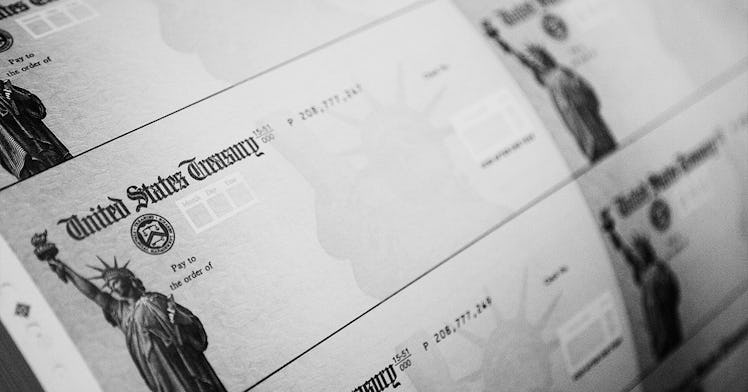Another Stimulus Payment Probably Isn’t Coming Until After the Election
If it comes at all.

The need for another COVID-19 stimulus payment to go out to individuals is clear, as unemployment stays high and our country’s continued failure to contain COVID-19 makes safe reopenings near impossible. Unfortunately, the prospects of another stimulus bill passing before the election are not good, as the Senate’s latest failure to pass a coronavirus stimulus bill that didn’t even include the payments shows.
Every Democrat voted against the bill that would have reinstated enhanced unemployment insurance (at half of its previous $600/week level), new small business loans, and funding for schools, testing, treatment, and vaccines. The determining factor for them was what the bill didn’t include: relief for state and local governments, rental and mortgage assistance, food aid, and, yes, another direct stimulus payment.
Senate Minority Leader Chuck Schumer called the bill “beyond insufficient” and “completely inadequate.”
The bill came up or a vote after talks between Democrats and Republicans stalled. The vote was less of an effort to pass a bill and more of a way to argue that Democrats were playing politics instead of helping constituents, which is exactly what Senate Majority Leader Mitch McConnell said in the wake of the vote.
The House did approve a much more expansive $3 trillion bill all the way back in May that was quickly shot down by the GOP as mere political posturing.
The HEROES Act would extend unemployment benefits at their original level, give front-line workers hazard pay, fund contact tracing and testing efforts, and provide an even more generous direct stimulus payment, $1,200 per qualified filer and dependent, a $700 increase in the latter from the CARES Act.
So of the two competing proposals, just one has passed one house of Congress and the other doesn’t even contain another stimulus payment. That’s a pretty poor place to be for those hoping for more money from the feds in the 53 days before the election, even the relative pittance (compared to some other countries’ efforts) that is within the realm of possibility in the United States.
There are 53 days before the election completely changes the situation in Washington. It is possible that a desire to appeal to skeptical voters might push some legislators from no to yes, but it’s hard to imagine a critical mass of lawmakers coming together in that relatively short amount of time.
So while it’s certainly not impossible that another stimulus payment makes its way to Americans, it’s looking less and less likely that it will be this iteration of the federal government that will make it happen.
This article was originally published on